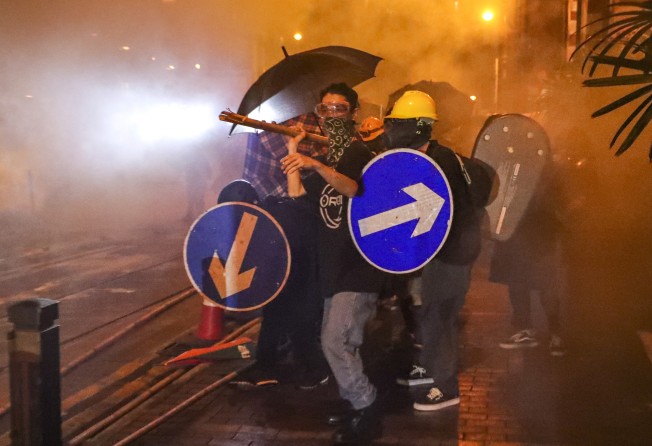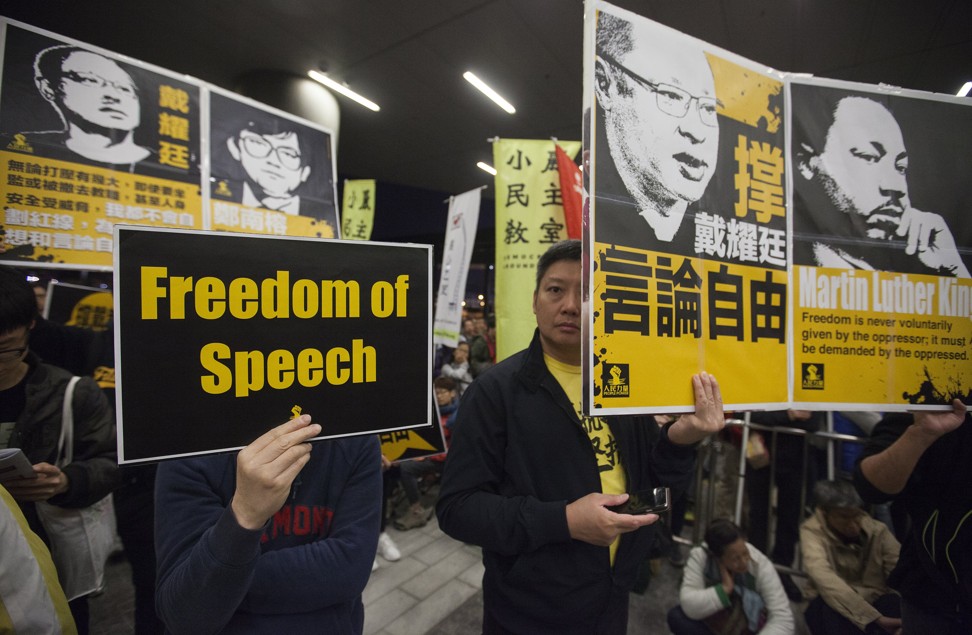If Hong Kong protesters have a dream, they need their own Martin Luther King to realise it
- A strong moral leader will have the authority to negotiate with the government, whereas a leaderless movement refusing to cede an inch risks sending each protester on the road to pointless martyrdom

Hong Kong’s protesters take pride in being leaderless. This is a very serious mistake. Without a strong leader who can not only embody their moral force, but negotiate and compromise as necessary on their behalf, they will be consigned to the status of martyrs or abject failures.
There is a belief among the young these days that being leaderless is an admirable quality in a protest movement. This originated with the Occupy Wall Street movement in New York, if not earlier. But that movement had no clear objectives and utterly failed.
If they do not have a seasoned leader who can embody their moral claims – and also apply those moral claims diligently to the protesters themselves – then they will have no practical means of gaining ground on their adversaries. They will have to content themselves with moral righteousness absent of real-world achievements, much as terrorists do on behalf of their perceived superior religious morality.
To understand the benefits of having a strong leader, protesters should see the movie Selma, about Martin Luther King’s leadership of the US civil rights movement protests in Selma, Alabama, in 1965. King stood strong for the rights of black citizens of the South, but he stood equally strong against violence on the part of anyone involved in his movement – even as a reaction to violence from the opposition.
As a result of his staunch moral leadership, he was able to negotiate directly with then US president Lyndon B. Johnson, pushing to get strong and effective civil rights legislation enacted.
Hong Kong’s protesters, in contrast, seem to want to reject negotiations under any realistic terms. Furthermore, they are unable to contain – or even effectively sanction – their worst and most violent elements. They would appear to have a fantasy that by refusing to give an inch, and even by allowing themselves to appear increasingly threatening, they will break resistance from the mainland and Hong Kong leadership, and gain approval of any and all their demands.
This is an absurd hope. Not only is it completely unrealistic, but it fails to even try to understand the forces acting on their adversaries. In Selma it was made clear, in outstanding performances by actors David Oyelowo and Tom Wilkinson – accurately reflecting the interactions between King and Johnson – that each understood the other’s position and constraints. And that each, while standing his ground, would push to find the compromise that came closest to meeting his requirements.

In contrast, Hong Kong’s protesters have no one who can play the role of King. As a result, they reject all efforts at negotiation, or even discussion, except under the most self-evidently unacceptable conditions.
This can only end badly. No effective protest movement has ever been completely leaderless. Some of the greatest leaders in history – Mahatma Gandhi, Nelson Mandela, King – have been leaders of protest movements, and were not corrupted or co-opted as the Hong Kong protest and Occupy movements seem to fear their leaders would be.
Hong Kong’s protesters have legitimate concerns, as did Selma’s. To imagine that Beijing has absolutely no understanding of these concerns is to confuse exceptionally firm position-taking with mindlessness. The protesters need to find and anoint a leader who is seasoned enough to believe that Beijing has at least some understanding of these concerns, and at the same time to have at least some understanding of the concerns of Beijing and Chief Executive Carrie Lam Cheng Yuet-ngor.
If Hong Kong’s protesters see this as a tug of war in which they must not give an inch or they will lose everything, then lose they will – pointlessly, and tragically.
Michael Edesess is chief investment strategist of Compendium Finance, adjunct associate professor at the Hong Kong University of Science and Technology and a research associate of the Edhec-Risk Institute